

Myth in movies: Was Jesus a user?
In anticipation of TRON: Legacy, I recently re-watched a bunch of simulation-world films including The Thirteenth Floor, eXistenZ, and the original TRON, which I hadn’t seen in over twenty-five years. While I remember being somewhat confused watching the futuristic Disney film as a kid, seeing it again with new eyes, I was amazed at how clearly it expressed the “life as illusion” theme I’ve been so fascinated by as an adult. In the original movie, Jeff Bridges is considered a “user.” While Bridges often plays users in his films, in this case, it refers to a computer user who manipulates the scenarios of a digital world that is very similar to our own. In the original film, users are considered mythical, messianic figures who can help free the programs from the game they find themselves in. This got me thinking.
Even though quite a bit of the original TRON went over my eleven-year-old head, I was immediately intrigued by the concept of the film, played the video game religiously, and even had a TRON cutout at my videogame-themed Bar Mitzvah. Besides being immediately taken by the film’s futuristic special effects, I thought the idea of being zapped into a digital world was pretty cool, but didn’t really give it much more thought until Total Recall came out eight years later. It was at that point that I began to seriously question how we can know what is actually real. I came to the conclusion that there was no way to know for sure, and after I saw The Matrix, I seriously began to consider whether our world was in fact, just an illusion.
After dabbling in kabbalah, a bit of pot, and a bunch more simulation films, I decided that our world was very unlikely to be real and made my case to just about anyone who would listen. No matter how solid my arguments were however, ultimately, none of them mattered unless they could be proven. As a former videogame junkie, I thought back to the games of my youth, and how those like Super Mario Brothers, Donkey Kong, and even Atari’s Adventure all had cheat codes and secret passages built in that allowed the characters to slip outside the usual confines of the game. Surely if our world is also a program, such cheat codes and escape passages must also exist.
In the 13th Floor, the proof of the illusionary world (spoiler alert) is revealed when a character goes someplace he would never ordinarily go. In The Truman Show, Truman must (spoiler alert) face his fears of drowning and sail in a violent sea in order to escape the confines of his illusionary world. While I visited the Bioluminescent Bay in Vieques this past summer, and it is a place I wouldn’t ordinarily go, I have a feeling the cheat code would be more likely to be located in some tiny village in Mongolia or a mosque in Iran. If the escape hatches are actually located in these places, I will unfortunately not discover them anytime soon.
These were the kinds of things I was discussing with my girlfriend shortly after the simulation movie marathon that we’d both watched together. Basically, I was sharing my thoughts on how to find a way out of the illusionary program that I believed this world to be and she was nice enough to smile and not turn me in to the proper authorities. Wary that the depth of my obsession might reveal itself, I suggested a nice wholesome game of Scrabble to get my mind off of any secret escape hatch or superpowers cheat code.
As I was picking out my seven letters to begin the game, something very eerie happened—something that had never happened to me before in my 30-some-odd years of playing the game. Placing the letters one-at-a-time on my little Scrabble easel, I was amazed at the word that formed in the proper order: E…S…C…A…P…E… Dumbfounded, I looked at the final letter I was holding in my hand. It was a “U”. ESCAPE U the universe seemed to be telling me. But how, how could I escape? I placed the word on the board and picked six more letters in this order: G…E…N…S. Still holding the “U” I arranged the letters to form the word GENUS. “Imagine if the next letter I pick is an I,” I kidded to my almost as astounded girlfriend. Amazingly enough, it was! The letter enabled the formation of the word: GENIUS. The full message from the Scrabble gods? ESCAPE U GENIUS. Was the message sarcastic? Was I being made fun of? There was no way to know for sure. Scrabble unfortunately doesn’t including winking emoticons or J/K tiles.
I wondered if the prophets of yore got their messages in this fashion. After all, if life really is just a video game of sorts, do the programmers get their kicks with the various scenarios they create? Have they invented a great big Myst-like mystery that we as a race have to solve before the time is up? Does it have to do with the pyramids? Atlantis? The Bermuda Triangle? Do we all have to work together, get over our issues, and come up with a solution that can prevent our otherwise inevitable doom? Have we been so clueless that the programmers have needed to download themselves into the system to give us some hints?
If our world truly were some kind of computer program, video game, or something similar, it would explain a lot about our existence. I mean, we do seem to all be kind of connected. So perhaps we literally are, Matrix-style, in the outside world. Kind of like a giant online video game. Maybe outside this world, we’re all just playing a more advanced Second Life-type game called Earth. It does often feel like something is guiding our lives. Call it fate, or destiny, but maybe it’s just the programming of the game.
Then there are the similarities between the computer world and our world. For example, computer viruses are actually very similar to biological viruses: neither of them seems to actually be alive (biologists have been arguing this point for years), neither reproduces (they replicate), and they both wreak havoc on the systems they invade (no explanation necessary). There are also similarities between computer glitches and déjà vu. Is déjà vu just a result of those who are outside the game replaying a section of it? Maybe they lost, or their character had died and so they had to go back to the last place they saved. When this occurs, some of us could remember being in the same scene before, resulting in that feeling of déjà vu. Perhaps prophets like Nostradamus or Edgar Cayce simply had a better connection and clearer memory of the program, which, like any program, is probably already completely written. This also explains the bizarre concept of time as it has been put forth by quantum theories which claim that time is an illusion—that anything that has happened, could happen, or will happen has actually already been written. According to these theories like multiverse, and many worlds theory, we don’t all move chronologically through time. Instead, as we make decisions we jump into that version of the universe that already exists—that already has been written—just like a computer game character does.
Another fascinating similarity between our world and the computer world is the concept of avatars. In mythology, an avatar is a god that takes a material form in our world, just as an online avatar represents you in the online world. Put all of this together—everyone being connected, the universal destiny, prophets with clear visions, and avatars with amazing powers, and it seems to explain the beings that have shown up in our myths that have tried to guide us towards some more enlightening end. What if our idea of God is actually the programmer or group of programmers of our reality, and Jesus, Buddha, Mohammad, Krishna, Moses, and other famous spiritual beings with amazing powers, were those programmers downloading themselves into their game to help course correct its ultimate outcome? It sounds no crazier than any other explanation for these beings.
Let’s take Jesus. The dude allegedly was born to a virgin, was the son of God, was able to walk on water, heal the sick, raise the dead, and come back to life himself. It is also said that he will one day return. So, if Jesus was a user of our computer game world, perhaps he was the son of the original programmer, was uploaded into the system (into the Beta program, Mary), was aware of the cheat codes that could give him special abilities, and after succeeding at guiding the world in the right direction (up for debate I suppose), promised to return later in the game once it was nearing completion (the end of days). Either that, or maybe Jesus was an application that enabled Earth to be upgraded from 1.0 to 2.0. So it’s not that Jesus literally died for our sins, the Jesus avatar or program sacrificed itself so that we could all be upgraded. And one day he will return, bringing with him Earth 3.0, which has been prophesized to begin upgrading on December 21st, 2012.
If Jesus does one day return, and the programmers have as wacky a sense of humor as I think they do, perhaps we will see his true face and realize that every single one of us has known him all along. Perhaps Jesus will be none other than Super Mario. The blue eyes, the ethnic features, the facial hair, the blue-collar job, it could very well be him. Shortly after arriving he will eat his magic mushroom and bring us all along with him to the next level that will feature a whole new array of challenges for us to surpass so that we may reach the end of our collective journey. That is of course, until “Earth 2: The Afterlife” is released.
Marc Oromaner is a New York City writer whose book, The Myth of Lost offers a simple solution to Lost and uncovers its hidden insight into the mysteries of life. He can be contacted in the discussion section of The Myth of Lost Facebook page or on his new blog The Layman’s Answers to Everything.
The Myth of Lost is available on Amazon and barnesandnoble.com.
Latest posts by Marc Oromaner (Posts)
- The long lost instruction book to the game of life - June 24, 2014
- Warning: Spirituality can be hazardous to your health & wealth - April 17, 2014
- Was 2012 an epic fail? - December 30, 2013
- 5 steps to uncover your destiny - September 20, 2013
- Evolution has been in The Bible all along - August 18, 2013
 Print This Post
Print This Post

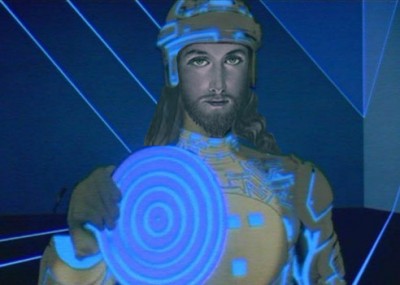
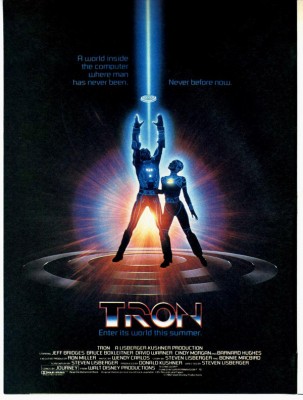
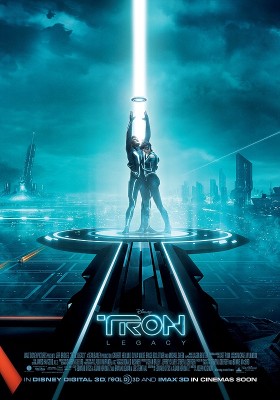

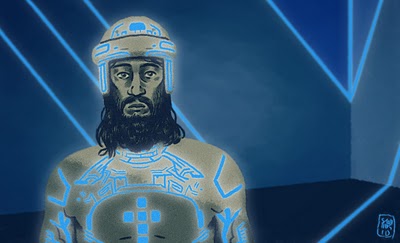
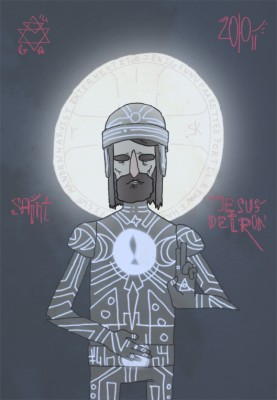
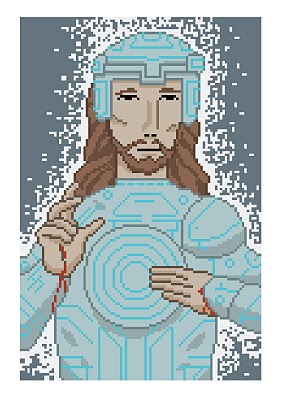
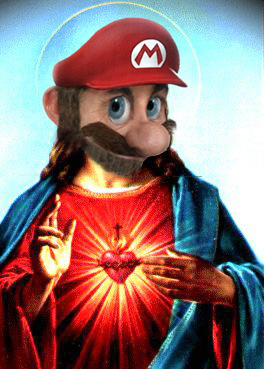



Discussion Area - Leave a Comment